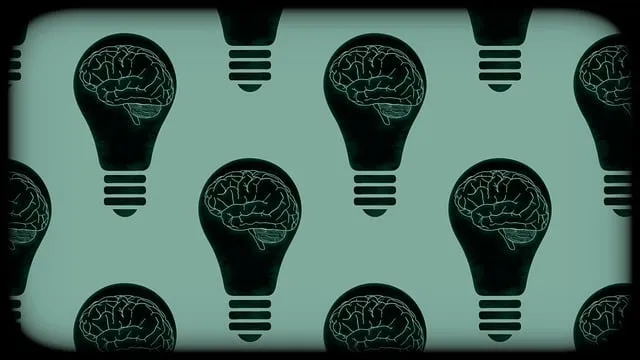Wheat Ridge Kaiser mental health programs prioritize patient safety through comprehensive risk assessment and proactive management. Professionals identify unique risks, such as psychological vulnerabilities and environmental factors, analyzing likelihood and impact. The Community Outreach Program focuses on early intervention and prevention via Mental Health Awareness initiatives. Strategies include screening for burnout and promoting stress reduction among staff, alongside mindfulness practices for clients. By balancing confidentiality and intervention, professionals navigate ethical dilemmas while mitigating self-harm and harm to others risks. Holistic approaches, evidence-based practices, strategic planning, and continuous learning enhance patient outcomes and foster a supportive environment at Wheat Ridge Kaiser.
Mental health professionals are faced with complex challenges in ensuring client safety. This article explores comprehensive risk assessment strategies, drawing insights from the robust practices at Wheat Ridge Kaiser Mental Health Programs. We delve into understanding risk assessment fundamentals, identifying specific risks, navigating ethical considerations, and implementing effective management techniques. Additionally, it highlights continuous monitoring methods for constant improvement, offering a roadmap to enhance patient care and safety within mental health settings.
- Understanding Risk Assessment in Mental Health Practices
- Identifying Potential Risks at Wheat Ridge Kaiser Mental Health Programs
- Ethical Considerations for Evaluating Client Safety
- Implementing Effective Risk Management Strategies
- Continuous Monitoring and Improvement Techniques
Understanding Risk Assessment in Mental Health Practices

In the realm of mental health care, risk assessment is a critical component that plays a pivotal role in ensuring patient safety and guiding treatment strategies. For professionals at Wheat Ridge Kaiser’s mental health programs, understanding this process involves recognizing potential risks and hazards unique to their field. These may include evaluating clients’ psychological vulnerabilities, assessing environmental factors, and identifying triggers for various mental health conditions. A comprehensive risk assessment goes beyond simple identification; it involves analyzing the likelihood and potential impact of these risks, enabling practitioners to implement tailored interventions.
The Community Outreach Program Implementation at Wheat Ridge Kaiser often emphasizes the importance of early intervention and prevention, which aligns with effective risk assessment practices. By fostering Mental Health Awareness within communities, professionals can proactively address issues like low self-esteem, a factor that contributes to several mental health disorders. Through these initiatives, the programs aim to create a supportive environment where individuals feel empowered to seek help and manage their well-being, ultimately reducing the risks associated with untreated or poorly managed mental health concerns.
Identifying Potential Risks at Wheat Ridge Kaiser Mental Health Programs

At Wheat Ridge Kaiser mental health programs, identifying potential risks is a multifaceted process that involves assessing the unique challenges faced by both patients and staff. These risks can stem from various sources, including high patient-to-staff ratios, exposure to traumatic narratives, and the emotional demands of providing care in a highly demanding healthcare environment. Regular risk assessments are conducted to ensure the safety and well-being of everyone involved.
A comprehensive approach includes screening for burnout, depression, and anxiety among mental health professionals. Public Awareness Campaigns Development can play a crucial role in mitigating these risks by promoting stress reduction methods and fostering an open dialogue about mental health within the organization. By integrating these strategies into their workflow, Wheat Ridge Kaiser aims to create a supportive environment that not only minimizes professional risks but also enhances patient outcomes through robust risk assessment for mental health professionals.
Ethical Considerations for Evaluating Client Safety

In evaluating client safety, mental health professionals at Wheat Ridge Kaiser mental health programs must navigate a complex landscape of ethical considerations. Beyond ensuring physical security, they are tasked with assessing and mitigating risks to emotional well-being, especially in light of escalating mental health challenges in today’s digital age. This includes recognizing the potential for self-harm or harm to others, which necessitates a nuanced understanding of each client’s unique circumstances.
Ethical evaluations require professionals to balance confidentiality against the need to intercede when there are credible threats. Incorporating practices such as mindfulness meditation and positive thinking, often facilitated through Wheat Ridge Kaiser mental health programs’ comprehensive approach, can empower clients with coping mechanisms while enhancing self-esteem. These strategies not only promote client healing but also serve as ethical frameworks for professionals to navigate delicate situations, ultimately fostering a safer environment for all involved.
Implementing Effective Risk Management Strategies

Mental health professionals face unique challenges that require robust risk management strategies to ensure patient safety and well-being. At Wheat Ridge Kaiser mental health programs, implementing effective risk assessment and mitigation tactics is a holistic process. It involves not just identifying potential hazards but also developing tailored interventions based on individual needs. This proactive approach leverages evidence-based practices such as Mindfulness Meditation and Stress Reduction Methods to create a resilient environment.
Through comprehensive Risk Management Planning for Mental Health Professionals, practitioners at Wheat Ridge Kaiser are equipped with tools to navigate complex situations. By fostering open communication, regular staff training, and ongoing evaluation of risk assessment protocols, the programs aim to minimize vulnerabilities. This strategic management not only enhances clinical outcomes but also cultivates a supportive atmosphere where professionals can thrive while delivering exceptional patient care.
Continuous Monitoring and Improvement Techniques

Mental health professionals constantly face new challenges and evolving best practices, making continuous monitoring and improvement techniques essential. At Wheat Ridge Kaiser mental health programs, professionals utilize a range of strategies to stay at the forefront of their field. This includes regularly reviewing research, attending workshops and conferences, and participating in peer-to-peer learning groups to share insights and experiences. By staying informed about emerging trends and effective interventions, these experts can better serve their clients.
Additionally, integrating feedback mechanisms into clinical practices fosters a culture of resilience building among mental health professionals. Regularly assessing patient outcomes through surveys or interviews allows for identifying areas of improvement and refining treatment approaches. The Mental Wellness Podcast Series Production, for instance, provides an avenue to explore innovative techniques and share them with the broader community, enhancing overall risk management planning for mental health professionals.
Mental health professionals play a crucial role in identifying and mitigating risks within their practices, ensuring client safety is paramount. By understanding risk assessment methodologies, as demonstrated by the successful strategies at Wheat Ridge Kaiser Mental Health Programs, and adopting ethical guidelines, professionals can create robust systems. Implementing effective risk management strategies, coupled with continuous monitoring, enables practitioners to anticipate and address potential hazards. This proactive approach not only protects clients but also fosters a more secure and productive work environment, ultimately enhancing the quality of care provided by mental health professionals.






